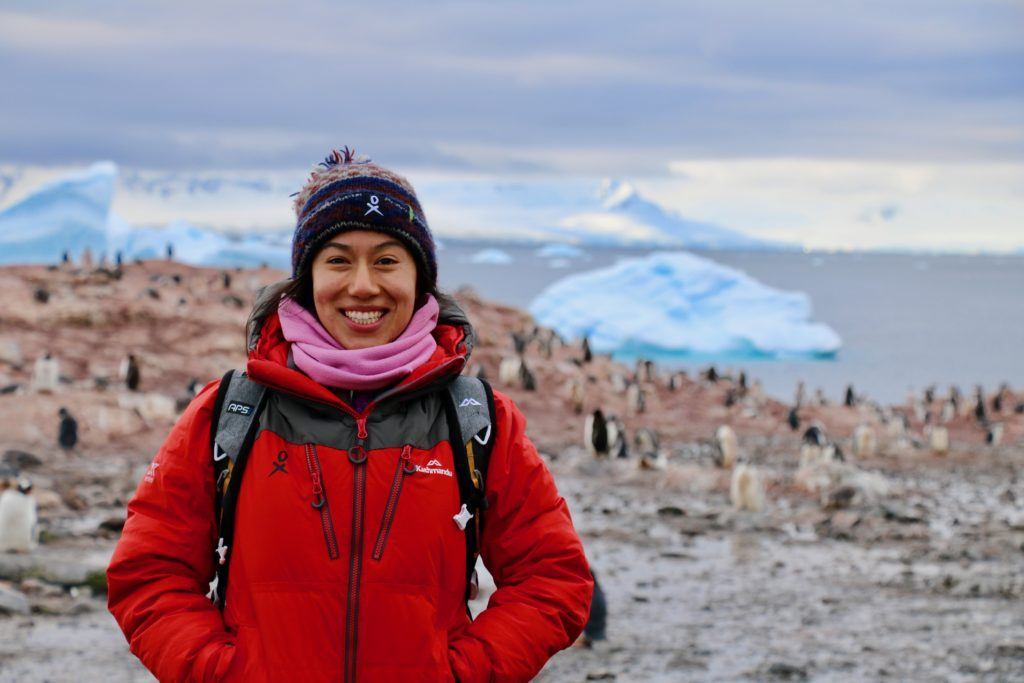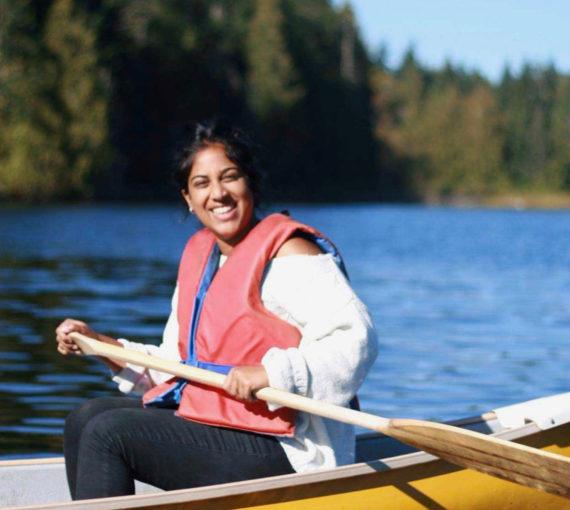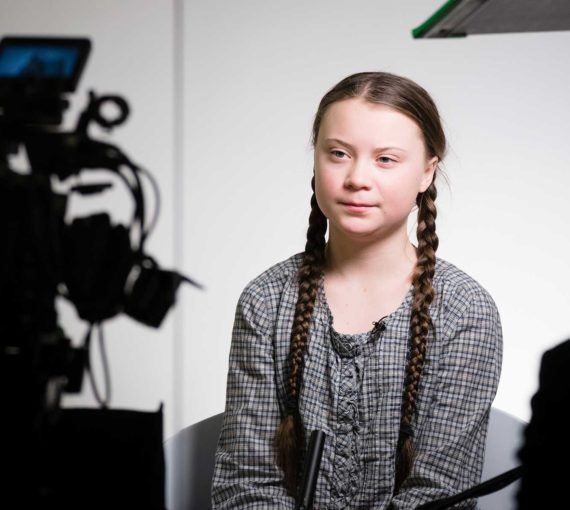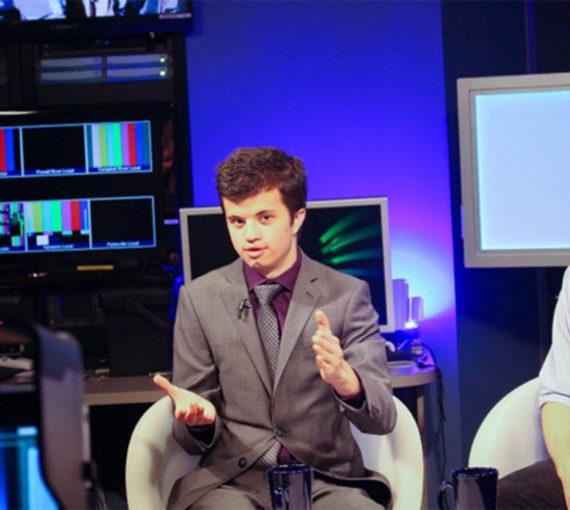
Paloma is a volunteer with the public engagement team at the David Suzuki Foundation and a PhD student studying the social relationships of mammals.
Paloma is a volunteer with the public engagement team at the David Suzuki Foundation and a PhD student studying the social relationships of mammals. Passionate about community outreach, Paloma dedicates her time to connecting youth with the environmental movement. Concerned that human mammals are getting more and more disconnected with each other and nature, Paloma has made it her mission to build strong communities that empower young people to act in connection with nature.
“In a world of more than seven billion people, each of us is a drop in the bucket. But with enough drops, we can fill any bucket.” — David Suzuki
What inspired you to get involved in the environmental movement?
It stems from my childhood. My family moved to Switzerland when I was little, and I grew up surrounded by gorgeous natural landscapes. I would play in the forest by my house or bike around the neighborhood with my friends every day. I naturally came to love the outdoors from pure exposure around my home and on school field trips. I’ve developed a deep connection to nature, and from this connection, I’ve become committed to caring for the environment. I figure, if I’m not willing to be the change needed, then who will? I chose to work with young people because they are the ones that will be most affected by the decisions (or indecisions) we make today. I want to empower them to be the change they want to see in the world. We are motivated to care for what we love, so my primary goal is to help others fall in love with nature too!
What advice do you have for those who want to be the change?
Jump in and bring others with you! It’s easy to be overwhelmed by thinking you need to solve every issue. Thinking about it too much can prevent you from doing anything at all. Instead, find something you care about and you feel can have an impact, and then just get started. Everything we do feeds into the whole, whether it’s helping protect a piece of land, petitioning your local government or changing the menu at your kids’ school. Our combined actions create waves of change. My personal goal has been to empower youth with an understanding of our natural world and the impact humans have on it. I’ve done this through teaching undergraduate biology classes, examining the biodiversity of streams in science outreach programs and teaching students about plastic pollution as a DSF volunteer. Educating young people is just one part of the puzzle, and it’s something I have dedicated myself to. Another piece of advice is to surround yourself with people who inspire you. No matter where you are in your environmental journey, there are always going to be people further along and further behind than you. That is an asset for everyone. It means you are both a potential mentee and mentor. So make yourself available to others so you can both learn from and teach people!
What encourages you to keep going?
I’m motivated by the thought of having a positive impact on the world. I believe no one is an island – everything we do has its ripple effects. Every action influences the whole and, however small, they are all cumulative. The small steps I have taken to live sustainability influence others to follow suit. I know I’ve affected people in family, my friends and my larger community. I studied social network theory during my PhD and learned that behaviors propagate within social networks like the flu being passed on from peer to peer. I never thought about water conservation until I lived in Australia and my friend called me out on letting the tap run for 10 minutes straight while I was doing the dishes. Reducing the amount of fresh water she consumed might not have made a huge difference, but she also affected my behavior, making me more aware of the issue and expanding her impact. I think we can all be proud of what we are doing while still pushing for more action.
As a DSF volunteer, you have been seeking out strategic feedback from DSF’s community – what learnings stand out for you?
I am most interested by how often people talk about our need to engage youth and children because they are the future! I’ve been working with DSF on workshops for kids on sustainability, environmental issues and how they can get involved. I want all people, especially young people, to feel like they have the power to take action. Progress is not something politicians do in isolation. Jacinda Ardern, the Prime Minister of New Zealand, said she didn’t realize how much people cared about plastic pollution until she received hundreds of letters from people about it, most of which were from children. Politicians are affected by their constituents, and even children can have a huge effect.
What’s next?
I’ve been working to resurface a program called Suzuki Speaks in Schools, which is now a volunteer-led outreach program. We want to give teachers and students resources to engage with the climate movement and take action in their own ways. Talking directly to students makes such a huge difference – meeting young people who identify as environmentalists is so exciting. The face of this movement is changing, and we are seeing young people all around the world taking charge of their future and demanding change. I would like to continue supporting the Suzuki Speaks in Schools program to help empower youth with a solid foundational knowledge, plus the skills and tools to effectively influence decision-making – and ultimately encourage them to empower their own generation and the next!


